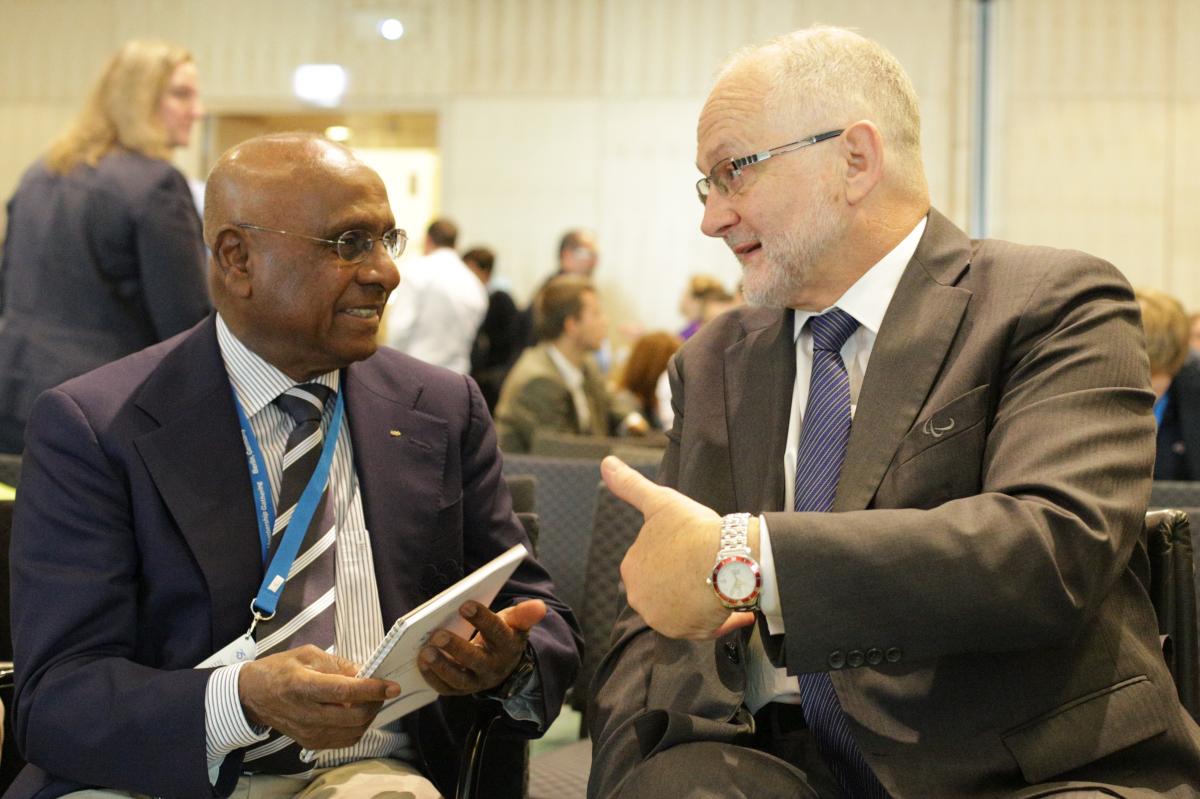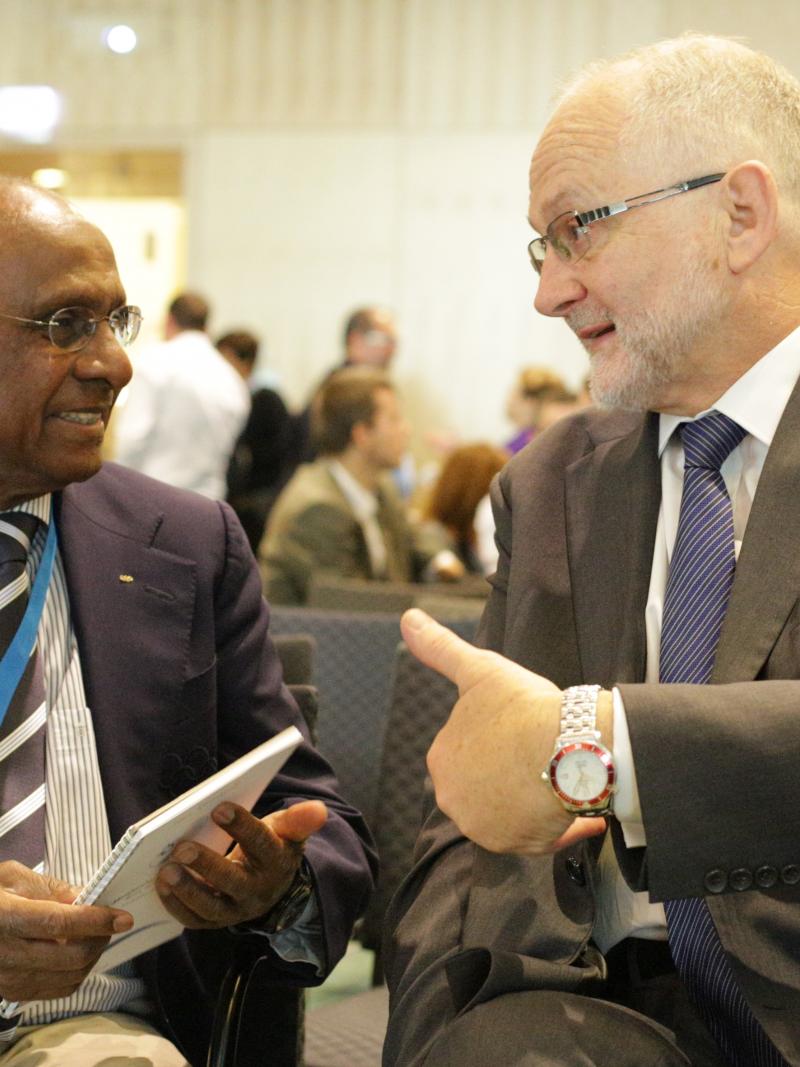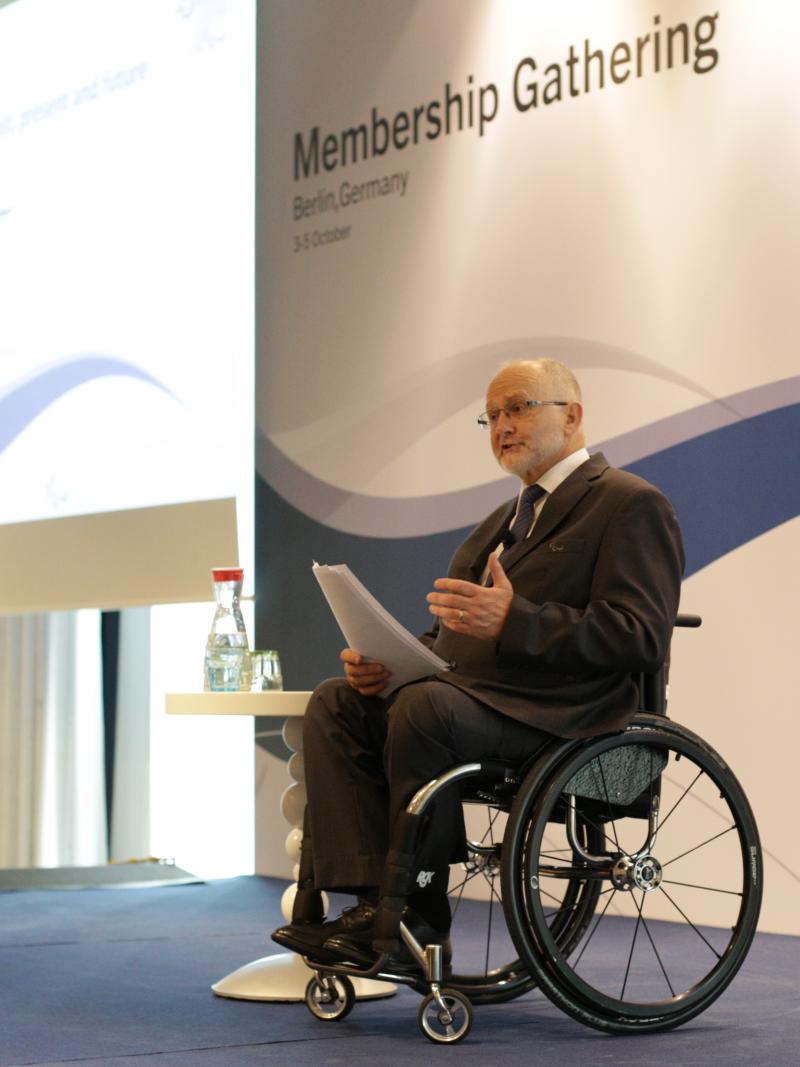IOC member Ramsamy encourages IPC to “fine tune” for the future
Sam Ramsamy, IOC delegate member to sport for athletes with a disability, talks about what lies ahead for the IPC. 04 Oct 2014
The IOC's Sam Ramsamy said the Olympic and Paralympic Movement will continue to work closely together
IOC delegate member Sam Ramsamy has encouraged the International Paralympic Committee (IPC) to continue fine tuning the Paralympic Games in order to ensure its growth.
Speaking to www.paralympic.org at the IPC’s Membership Gathering event in Berlin, Germany, a three-day event to celebrate the IPC’s 25th anniversary and discuss the future strategic direction of the Paralympic Movement, Ramsamy said he did not believe the IPC faced too many challenges in the future.
“Like any other organisation it needs to review where it has been and what has happened in the past. Looking at the past it has to fine tune the future,” he said.
“What happened in London should be used in some form as a format to say this is what the IPC represents. It has to be an evolutionary process and the process that is a happening at the moment is that sport for people for impairment is one step ahead of society. The challenge is reviewing this every two to three years, and to keep one step ahead of a changing world.”
The IPC was formed on 22 September 1989 and has since grown into one of world sport’s fastest growing governing bodies.
Today the Paralympic Games is the third biggest sporting event in the world and Ramsamy attributed some of the Paralympic Movement’s recent success down to the ever improving performance levels of para-athletes and its growing relationships with the IOC.
“The high performance level of the athletes has definitely accelerated the credibility of the IPC and what it stands for. The world has now realised disability is not in any way a barrier for athletes to perform at the highest level,” said the South African.
“Despite their disability, para-athletes perform superbly well and their performances are of a calibre that everyone respects and is of the calibre of people without an impairment.
“To me it’s fascinating to see how these athletes challenge themselves to get to the podium.
“There is no doubt that the credibility, popularity and respect for the IPC is so much better than it was 25 years ago. I think it is going to get even better simply because of the cementing of the relationship with the IOC is so good.
“Within the Olympic Movement and IOC members, there is so much more recognition and respect of Philip Craven and as a result respect for the IPC for their highly commended work.
“The accelerated rate of progress that has taken place in the IPC’s activities has impressed me a lot. It’s a direct result of wonderful leadership by Dr. Robert Steadward and latterly Sir Philip Craven.”
In the lead-up to the anniversary, the IPC ran a poll to find the best moments from the last 25 years. London 2012 came out on top, closely followed by the 2000 IPC-IOC Agreement and the Barcelona 1992 Paralympic Games.
For Ramsamy, who is Honorary Life President of Swimming South Africa having served as its President between 1991-1997, his favourite moment is much closer to home.
“The highlights of the last 25 years for me are varied. For instance, I know the IPC were not deeply involved in 1992, but when I saw the Paralympics there, to me it was fascinating. Then of course it went to Atlanta and it became even more fascinating. Over the years the fascination and the highlights have continued.
“My biggest highlight, however, is Natalie du Toit who competed in both the Olympic and Paralympics Games in Beijing.
“To me it was a highlight because she advertised both the Olympics and Paralympics. She showed the synergy between the two and the dovetail effect between the two more than any other athlete. She was a real darling and she continues to be someone in South Africa who everyone respects and loves.
“She represented the South African Olympic team in 2008 in marathon swimming, emphasising to all that para-athletes, despite their impairment, are doing superbly well, delivering performances that can match anyone in the world.”






